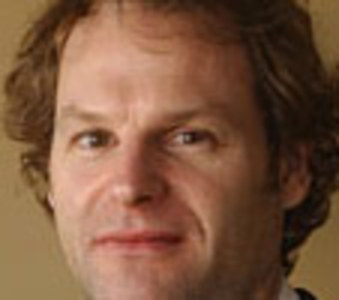René Lévesque showed he was no Amazing Kreskin when, in November of 1979, he declared that Joe Clark's victory that year over Pierre Trudeau had “definitively turned the page” on the era of French Power in Ottawa. Three months later, Mr. Trudeau was back in office with 74 of Quebec's 75 seats.
Then again, maybe Mr. Lévesque was only off by 30 years. If the Conservatives win a minority tonight, Quebeckers will likely send the fewest governing party MPs to Ottawa since Mr. Clark's meagre two-seat haul. The resurgence, and apparent permanence, of the Bloc Québécois suggests Quebec francophones are not particularly interested in cabinet seats.
This is a historical anomaly. From Confederation onward, even prime ministers from outside Quebec could count on francophone lieutenants to deliver a big contingent of MPs to the winning side. Mr. Trudeau made French Power his credo and appointed the country's first francophone finance minister: Jean Chrétien. Brian Mulroney had powerful Quebec ministers in Benoît Bouchard, Marcel Masse and, briefly, Lucien Bouchard. Mr. Chrétien brought Stéphane Dion and Pierre Pettigrew into federal politics, and won three dozen seats in the province in his last election.
But if the polls are correct, Stephen Harper will face slimmer ministerial pickings from Quebec than he did in 2006, when he was able to count on the relative abundance of 10 seats in the province. A subsequent by-election win has left him with a caucus of 11 Quebec MPs. Barely half are safe now.
Mr. Dion, should he accomplish the impossible, would not be any better off than Mr. Harper. The Liberals can probably count on winning a dozen Quebec seats. But half of them will be held by non-francophones. And the party's Quebec stars – Denis Coderre, Pablo Rodriguez and Justin Trudeau – are running in geographically contiguous ridings, suggesting they all couldn't become ministers.
Mr. Harper took more flack than he thought he deserved when he appointed investment banker Michael Fortier to the Senate after the last election, thereby ensuring Montreal was represented at the cabinet table. The verdict has been virtually unanimous in Canada's second city. Montreal Mayor Gérald Tremblay, provincial Economic Development Minister Raymond Bachand and Just for Laughs festival head Gilbert Rozon have publicly endorsed the 46-year-old International Trade Minister.
If, as expected, Mr. Fortier loses in Vaudreuil-Soulanges, he will be under pressure from Mr. Harper to stick around in some capacity and rebuild for the next time. He will remain the most valuable member of Mr. Harper's Quebec brain trust.
But he won't be in cabinet. Mr. Harper has made it clear in this campaign that, if Quebeckers want cabinet ministers, they must elect them first. Judging by the polls, Quebec voters have not been moved.
Of Mr. Harper's current Quebec ministers, only Josée Verner, Lawrence Cannon and Christian Paradis look safe in their respective ridings. Mr. Cannon, 60, who currently holds the Transport portfolio, is probably in line for a promotion. Ms. Verner, 48, bears the blame for allowing perceptions about Tory cuts to the arts to spin out of control in Quebec and, accordingly, will be lucky just to get a lateral move out of the Heritage Ministry.
If he does not expand his Quebec caucus, Mr. Harper could found new hope in Mr. Paradis, a bright, 34-year-old lawyer from Thetford Mines who was promoted to the Public Works portfolio from junior agriculture minister in the last cabinet shuffle. Just don't expect to see him in a major post any time soon.
“Harper's not going to make a second Maxime Bernier mistake,” one Tory insider said of the disastrous move to name the popular Beauce MP to the pivotal foreign affairs post, partly to sell the Afghanistan mission in Quebec. “The idea of appointing Quebeckers to cabinet just to win Quebeckers' hearts, that's finished.”
So, just what does Mr. Harper do with Mr. Bernier, 45, whose resignation from cabinet in May after leaving classified documents at his ex-girlfriend's house has been an unadulterated boon to Quebec's celebrity gossip media? He's clearly not lost his ambition. And Julie Couillard's anger-laden tour of the province's talk-show circuit to promote her recent tell-all book has, if anything, only enhanced Mr. Bernier's political odds.
In a weekend interview on Quebec television network TVA, Mr. Harper praised “Maxime” and the strong campaign he has waged in his riding. That doesn't mean he stands a chance of making it back into cabinet soon. But if Mr. Harper hopes to recoup likely Tory losses in Quebec, he'll need a star or two on his team. The absence of local vedettes severely handicapped this Tory campaign in the province. Under the circumstances, Mr. Harper may need Mr. Bernier, who was a competent if controversial industry minister, more than Mr. Bernier needs him.
Then again, to Bloc Leader Gilles Duceppe there would be no greater humiliation for a Quebecker than accepting a seat at Mr. Harper's cabinet table. “I'd rather be on my feet in the opposition than on my knees in power,” he recently told L'actualité magazine. He has been spinning variations of that line more and more as the campaign draws to a close.
Now it looks as though a plurality of Quebeckers is once again set to endorse Mr. Duceppe's concept of French Power, not Mr. Harper's or Mr. Dion's.




















Laissez un commentaire Votre adresse courriel ne sera pas publiée.
Veuillez vous connecter afin de laisser un commentaire.
Aucun commentaire trouvé